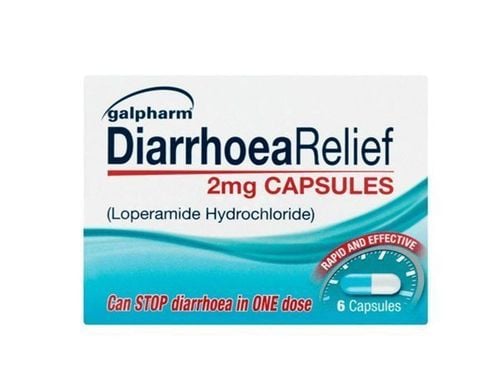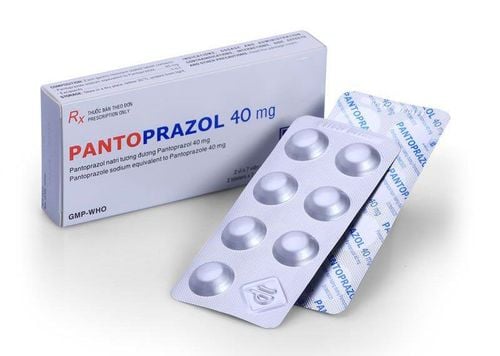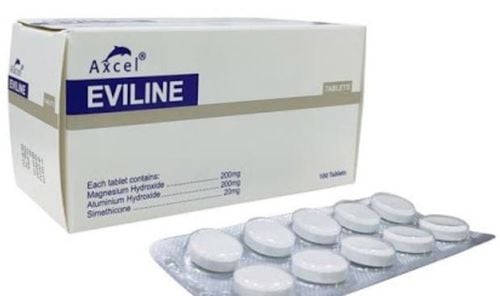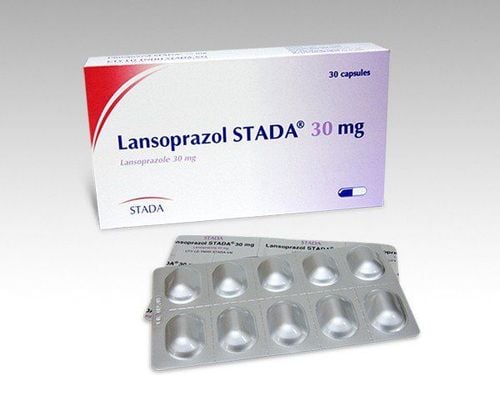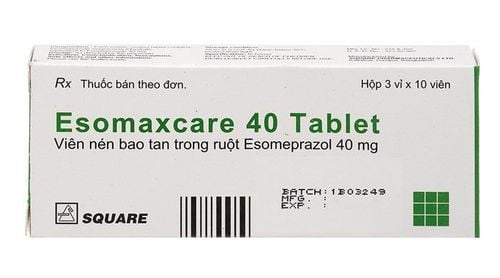This is an automatically translated article.
Agintidine 400 is a prescription drug commonly used in the short-term treatment of diseases related to the stomach and digestive tract. To use the drug effectively, it is essential to learn relevant information such as uses, doses, and side effects.
1. The main use of the drug Agintidine
Agintidine 400 is a drug containing the active ingredient Cimetidine and excipients just enough to reduce gastric acid secretion through the H2-antihistamine mechanism. Usually, doctors often use drugs in the treatment of conditions related to the excessive secretion of stomach acid, the reflux of stomach acid into the esophagus causing heartburn.
2. Administration and dosage of Agintidine
Agintidine is used orally, after meals or at bedtime. Dosage of the drug is different between adults and children, specifically:
Dosage of Agintidine with adults
Depending on the problem to be treated, you can refer to the following dosage:
Stomach ulcers , benign duodenal ulcer: Use Agintidine at a dose of 1 tablet x 4 times/day at meals and at bedtime. It is necessary to persist in taking the drug for 4 weeks for duodenal ulcers and at least 6 weeks for gastric ulcers. After recovering from the disease, it is necessary to use a maintenance dose of 1 tablet / day at bedtime. Zollinger - Ellison syndrome: Use the drug at a dose of 1 tablet / time x 4 times / day, in some cases can increase the dose up to 8 tablets / day. Stress causes upper gastrointestinal ulcers: Use orally or through a nasogastric tube 1 tablet, using time from 4 to 6 hours / time. For patients with pancreatic insufficiency who want to reduce the breakdown of pancreatic enzyme supplements can take Agintidine 1 tablet x 4 times/day, taken 60 to 90 minutes before meals. Dosage of Agintidine for children
The use of Agintidine for young children must comply with the indications and instructions of a specialist doctor, specifically:
Newborns: Only use when really needed, the dose Use 10 - 15 mg/kg/day with full-term infants and ensure normal kidney function. Children over 1 year old: Dosage is at 20-25 mg/kg/day divided into several times. Older children over 5 years old: Dosage is at 30 mg/kg/day divided into 3-4 times.
3. Indications and contraindications of Agintidine 400
With the above use, Agintidine 400 is indicated in the following cases:
People with duodenal ulcer progressing due to stress or using non-steroidal anti-inflammatory drugs. Use the drug in people with duodenal ulcers at low doses after the ulcer has healed to reduce recurrence. Treatment of esophagitis in patients with short-term gastroesophageal reflux disease. Prevention and treatment of upper gastrointestinal bleeding in patients with severe trauma, septic shock, severe burns, respiratory failure, liver failure... People with diseases of increased secretion in the gastrointestinal tract such as syndrome Zollinger-Ellison, multiple endocrine neoplasia. People with diseases of increased gastric secretion such as Zollinger - Ellison syndrome, multiple endocrine neoplasia. Besides, the drug is contraindicated for people allergic to cimetidine, women who are breastfeeding. Pregnant women should be cautious when using the drug, and should consult a specialist before using it.
4. Common side effects when taking Agintidine
During the use of Agintidine 400, some common side effects include:
Appear signs of digestive disorders, diarrhea. There is a feeling of headache, dizziness, fatigue, skin rash. Long-term use of the drug in high doses can cause breast enlargement and impotence in men. Elevated liver enzymes are transient and resolve spontaneously upon discontinuation of the drug. In addition, Agintidine also has the risk of causing some rare side effects such as:
Arrhythmia and sudden drop in blood pressure. Polymorphonuclear leukopenia, neutropenia, thrombocytopenia, pancytopenia, agranulocytosis. Causes anemia due to decreased absorption of vitamin B12. Occurrence of hallucinations, disorientation, confusion, agitation. Jaundice, hepatitis, liver dysfunction, acute pancreatitis, interstitial nephritis. There is a feeling of muscle pain, joint pain.
5. Some important notes when using Agintidine
For the safe and effective use of the drug, some important notes that you need to remember include:
Check your health status, rule out the possibility of cancer when using drugs to treat stomach ulcers Because drugs can mask symptoms, delay diagnosis. Reduce dose in patients with renal impairment. Do not take with other medicines because Agintidine 400 can make it difficult for the body to absorb some other oral medicines. If you miss a dose, take it as soon as possible. If it is almost time for your next dose, you can skip the missed dose. Absolutely do not use 2 doses of Agintidine at the same time. The drug Agintidine 400 is considered to be relatively safe when used to treat peptic ulcers. However, in the process of using the drug, you still need to pay attention to monitor your health status. Please contact your doctor for timely treatment when abnormalities occur.
Follow Vinmec International General Hospital website to get more health, nutrition and beauty information to protect the health of yourself and your loved ones in your family.
Please dial HOTLINE for more information or register for an appointment HERE. Download MyVinmec app to make appointments faster and to manage your bookings easily.




